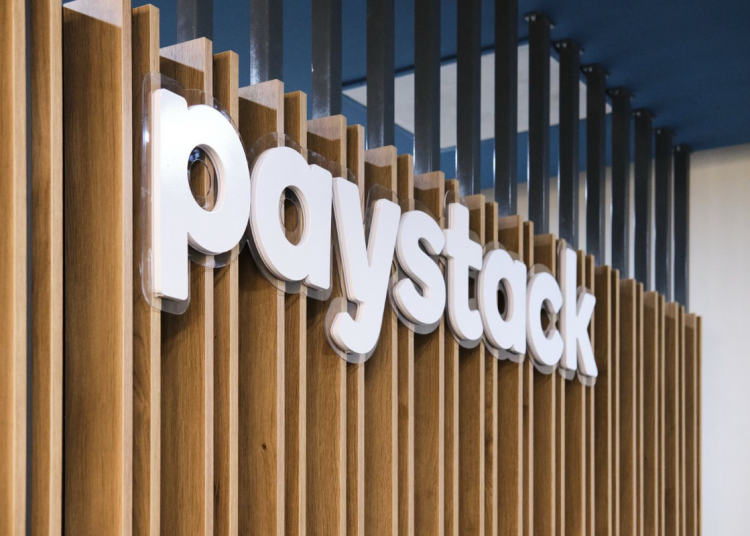Paystack, a leading African fintech company known for simplifying online payments, has introduced its first consumer-facing application, Zap.
This new platform is designed to streamline bank transfers, enabling users to complete transactions in under 30 seconds.
The app, launched by Paystack CEO Sola Akinlade at a special event, marks a significant shift for the company as it ventures into the competitive consumer banking space after years of focusing on business-to-business (B2B) services.
A New Era of Bank Transfers
Zap distinguishes itself by offering a rapid and seamless transfer experience. Unlike traditional digital banks or neobanks, the app does not require users to open a new account.
Instead, Nigerians can link their existing commercial bank accounts to Zap, facilitating fast transfers through a Paystack-Titan Trust Bank account.
This innovation means that users can fund their Zap account via direct debit without switching between multiple banking platforms.
One of the platform’s most notable features is its international payment functionality. During the launch event, Akinlade demonstrated a live transaction from a Bank of America account to a Nigerian recipient.
READ ALSO:
Paystack Launches in Kenya, Bringing Its Fast and Secure Payment Processing to Kenyan Businesses
While this feature allows Nigerians abroad to send money home instantly, Paystack clarifies that it is not entering the remittance market yet. Instead, Zap targets individuals who frequently need to make fast, reliable transfers, whether within Nigeria or from abroad.
How Zap Works
Users can link multiple commercial bank accounts to Zap, excluding microfinance institutions like OPay, PalmPay, and Moniepoint.
Once linked, the Zap account is funded through direct debit, creating a streamlined process for rapid transactions. This closed-loop system allows Paystack to maintain greater control over funds moving within its ecosystem.
The app’s minimalistic interface enhances the user experience, focusing on speed and ease of use. Upon opening Zap, users are greeted with their account balance, recent transactions, and a simple “Send Money” button, allowing for quick navigation and execution of transfers.
Paystack has implemented a tiered verification system for Zap users, ensuring regulatory compliance through Know-Your-Customer (KYC) protocols:
- Tier 1: Users who verify their identity with a Bank Verification Number (BVN) can transfer up to ₦50,000 daily and hold a maximum balance of ₦200,000.
- Tier 2: Users providing additional documentation, including a selfie, National Identification Number (NIN), and physical address, have limits of ₦200,000 daily and ₦500,000 in their account.
- Tier 3: For higher limits, up to ₦5 million daily and ₦100 million maximum balance, users must complete advanced verification, including address verification.
Addressing the Growing Demand for Bank Transfers
Paystack’s decision to launch Zap stems from the rising importance of bank transfers in Nigeria’s financial landscape.
In 2023, over 58% of the transactions Paystack processed were bank transfers, more than double the 28% recorded in 2022. This surge reflects a growing consumer preference for pay-by-account methods over traditional card networks.
By building on its established payment infrastructure, Paystack has positioned Zap as a solution to persistent challenges in Nigeria’s bank transfer system.
The company’s technical expertise is demonstrated by its impressive operational record, processing three billion API requests in Q4 2024 with only nine and a half minutes of downtime.
Competing in a Crowded Fintech Landscape
With Zap, Paystack enters a highly competitive market dominated by fintech heavyweights like PalmPay, OPay, Moniepoint, and Kuda.
These platforms gained substantial user bases by offering fast, affordable transfers, particularly during Nigeria’s cash scarcity crisis in 2023.
While Zap’s transaction speed is a major selling point, its fee structure currently makes it a pricier option. Depositing ₦10,000 through a linked account costs ₦35, while withdrawing ₦9,900 incurs a ₦25 fee.
This means a user pays ₦50 in total fees for a ₦10,000 transfer, more than the costs associated with some competitors. However, Akinlade indicated that the pricing model will evolve as the platform grows.
Despite the competitive pressure, Paystack believes Zap’s superior user experience and speed will set it apart. “We are not competing against other fintechs. Our ideal users are people who send money frequently and are on the go a lot,” Akinlade stated, highlighting Zap’s focus on delivering premium service for individuals who value efficiency and reliability.
READ ALSO:
How Standard Bank’s Strategy Keeps It Africa’s Most Valuable Banking Brand
Building a Financial Ecosystem
Zap represents more than just a new product for Paystack; it is a strategic move toward creating a comprehensive financial services ecosystem.
By keeping funds within its network, Paystack can enhance transaction efficiency and offer a more integrated payment experience.
For example, when a user transfers money from Zap to a Paystack-Titan account, the funds never leave Paystack’s ecosystem, optimising both speed and security.
This approach mirrors a broader trend among fintech companies seeking to deepen customer engagement through closed-loop systems.
For Paystack, Zap is a natural progression from its B2B dominance toward a more consumer-centric future.
What Lies Ahead for Zap?
As Paystack continues to refine Zap’s features and pricing, its long-term success will depend on its ability to balance speed, affordability, and customer experience. With millions of Nigerians facing economic challenges, competitive pricing will be critical to driving adoption.







Leave a Reply